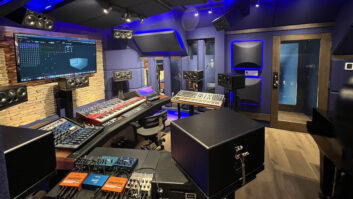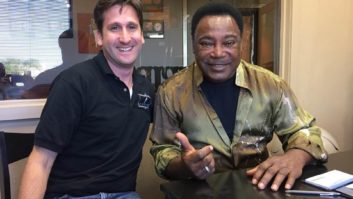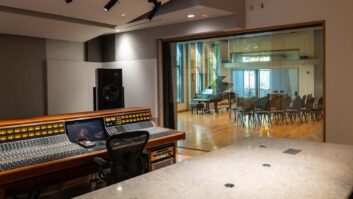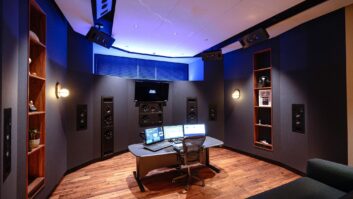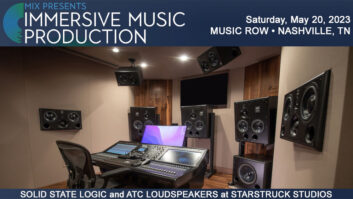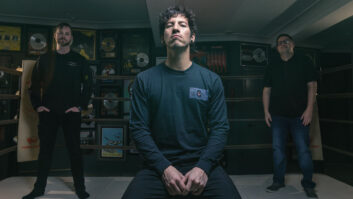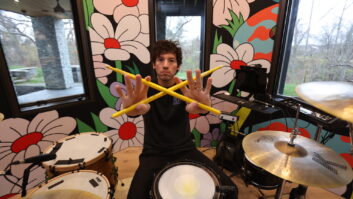The down-to-earth vibe and vintage gear at Gravity Studios in Chicago draw demo work from local alternative rockers such as Smashing Pumpkins. But how does a studio keep a band-and their major-label project-grounded in the Windy City when Los Angeles or New York City beckon?
A second room might do the trick, according to Gravity owner Doug McBride. The six-year-old Wicker Park facility (www.gravitystudios.com) is adding a Pro Tools-driven B Room designed by Luis Martinez and Associates. McBride says it will be devoted to editing and overdubbing and completed this winter.
Primarily, McBride says, “we do demos that help bands get signed to major labels, and when they get signed we’ll be in the position, because of reputation and their need, to get the record and produce it, rather than always being the bridesmaid and never the bride.”
By the looks of their schedule, it might work. Veruca Salt recently were in, tracking their new CD with producer Brian Liesegang and engineer Chad Adams. Nash Kato of Urge Overkill recorded with producer Eric Rosse. Producer Brad Wood mixed a new Sony/5055 record for Verbow.
A major Gravity attraction is the 1976 Neve 8058 console, which, McBride says, is the only one in Chicago. L.A. Neve technician Pat Schneider installed and modified the 28-channel in-line console, which has 60 inputs and 32 channels of Uptown 990 moving fader automation. The board spent the late ’70s at Automated Sound in New York, recording Steely Dan’s Aja, among other classic albums.
McBride also attributes Gravity’s rise to the studio’s ability to stay in touch with recording trends and the Chicago alt-rock scene. “The day I finished building the studio, I saw Veruca Salt’s first show,” McBride says. “And the first song we recorded was the demo of ‘Seether,’ which got them signed and became a big hit. Through that involvement with Veruca, the studio got booked.”
Media attention was also turning to Chicago. “Two months after we started, Billboard proclaimed Chicago ‘cutting edge’s capital.’ Urge Overkill, Smashing Pumpkins, Liz Phair and Ministry were breaking out of Chicago, and they ordained Chicago the successor to Seattle,” McBride recalls. “We did demos for eight bands [including Smashing Pumpkins] that got signed in major label deals in what they called the ‘Chicago signing frenzy of 1994 and 1995.’
The studio acquired Chicago’s first Mackie 32×8 console when it began, McBride says, and later an Amek desk. He records on a Studer A800 24-track 2-inch recorder, Sony 2600 and Panasonic 3700 DATs and an HHB CD recorder. Monitors include a Genelec 1031a, Yamaha NS-10Ms and Auratones. As a result, producers like Peter Mokran have worked on records for Sinead O’Connor and Angelique Kidjo at the studio, and McBride has a chance to produce Columbia/C2 band Frogpond, who first came to the studio to do their demos. “I hope that’s a trend that continues.” he says.
